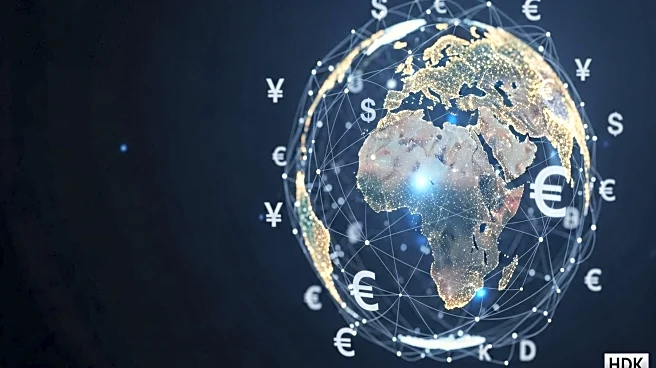What is the story about?
What's Happening?
Foreign investors have turned net sellers in Asian markets, ending a three-week buying streak with total outflows amounting to US$2.29 billion. This shift was primarily driven by significant withdrawals from Taiwan, which saw an outflow of US$1.16 billion. The change in investment patterns coincides with Taiwan's rising unemployment rate, which increased for the third consecutive month in August 2025. Other countries such as India and South Korea also experienced net outflows, with India seeing US$1.08 billion in outflows despite a rise in industrial output. Vietnam continued its losing streak with US$201.6 million in outflows, exacerbated by new U.S. import tariffs. Conversely, Indonesia and the Philippines recorded net inflows, with Indonesia benefiting from the conclusion of the Indonesia-EU Comprehensive Economic Partnership Agreement.
Why It's Important?
The shift in foreign investment patterns in Asia could have significant implications for regional economies and global markets. The outflows from Taiwan and other countries may reflect investor concerns about economic stability and growth prospects, potentially leading to increased market volatility. The inflows into Indonesia and the Philippines suggest a selective confidence in certain markets, possibly driven by recent trade agreements and economic policies. These movements could influence currency valuations, stock market performance, and economic growth in the affected countries. For U.S. investors and businesses, understanding these trends is crucial for making informed decisions about international investments and trade relations.
What's Next?
As foreign investors reassess their positions in Asian markets, further shifts in investment patterns could occur. Countries experiencing outflows may need to implement policies to attract foreign capital and stabilize their economies. The ongoing trade tensions and economic policies in the U.S. and other major economies will likely continue to influence investor behavior. Monitoring these developments will be essential for stakeholders looking to navigate the complex global economic landscape.

















